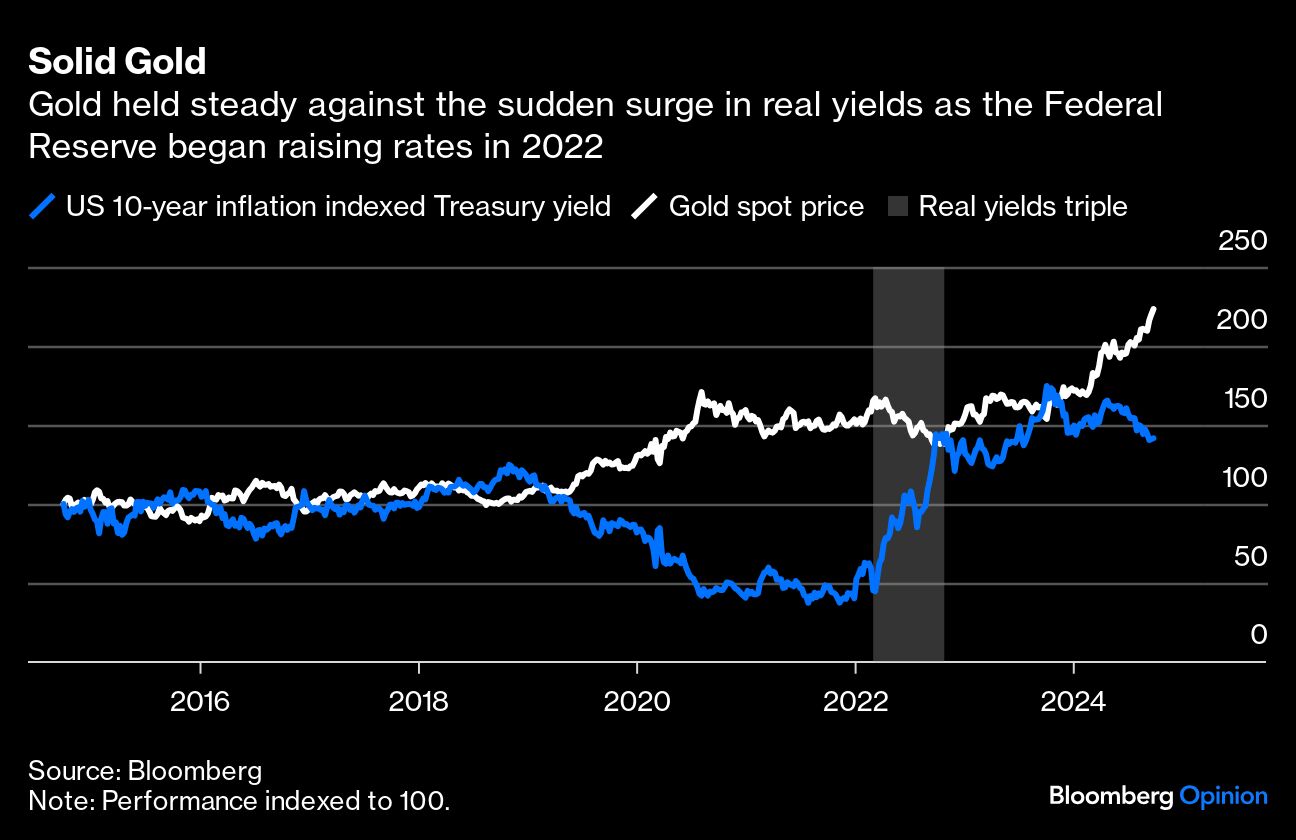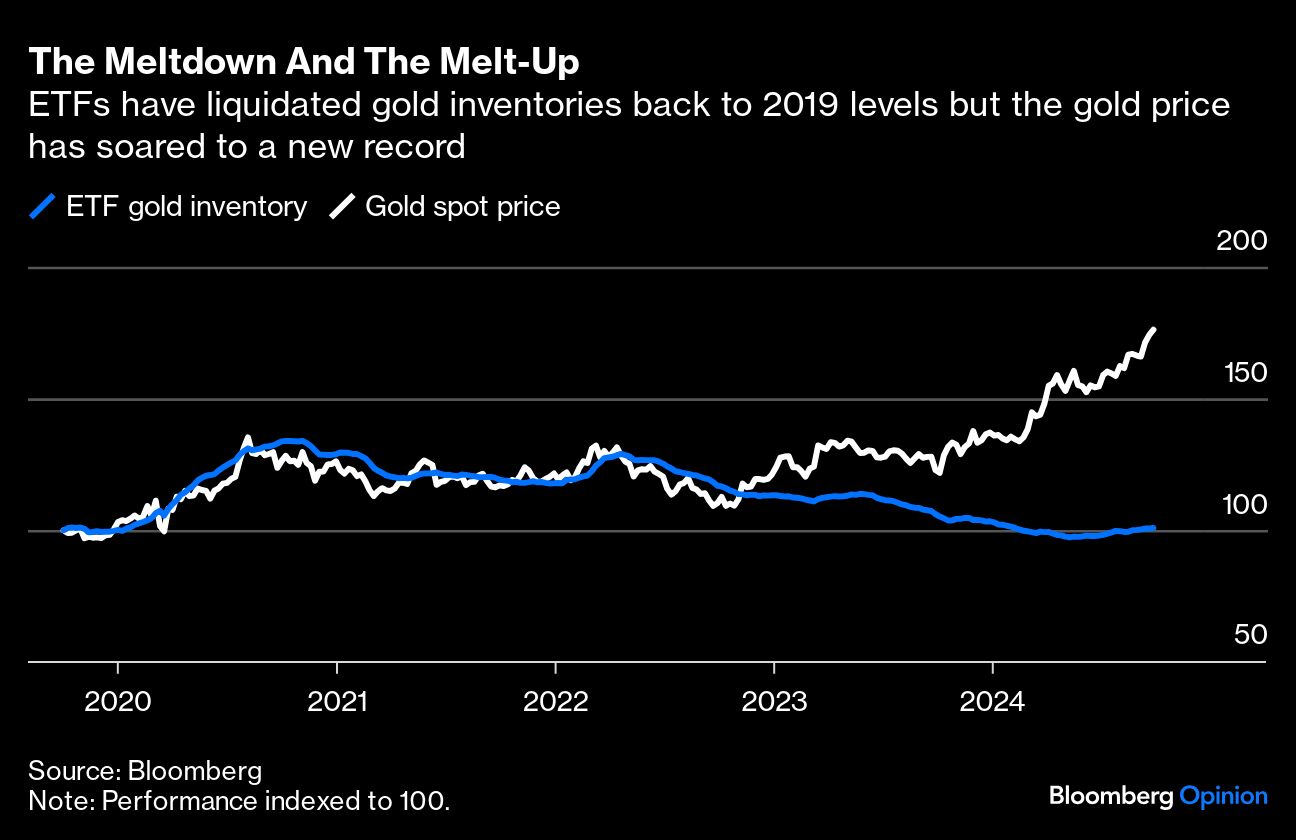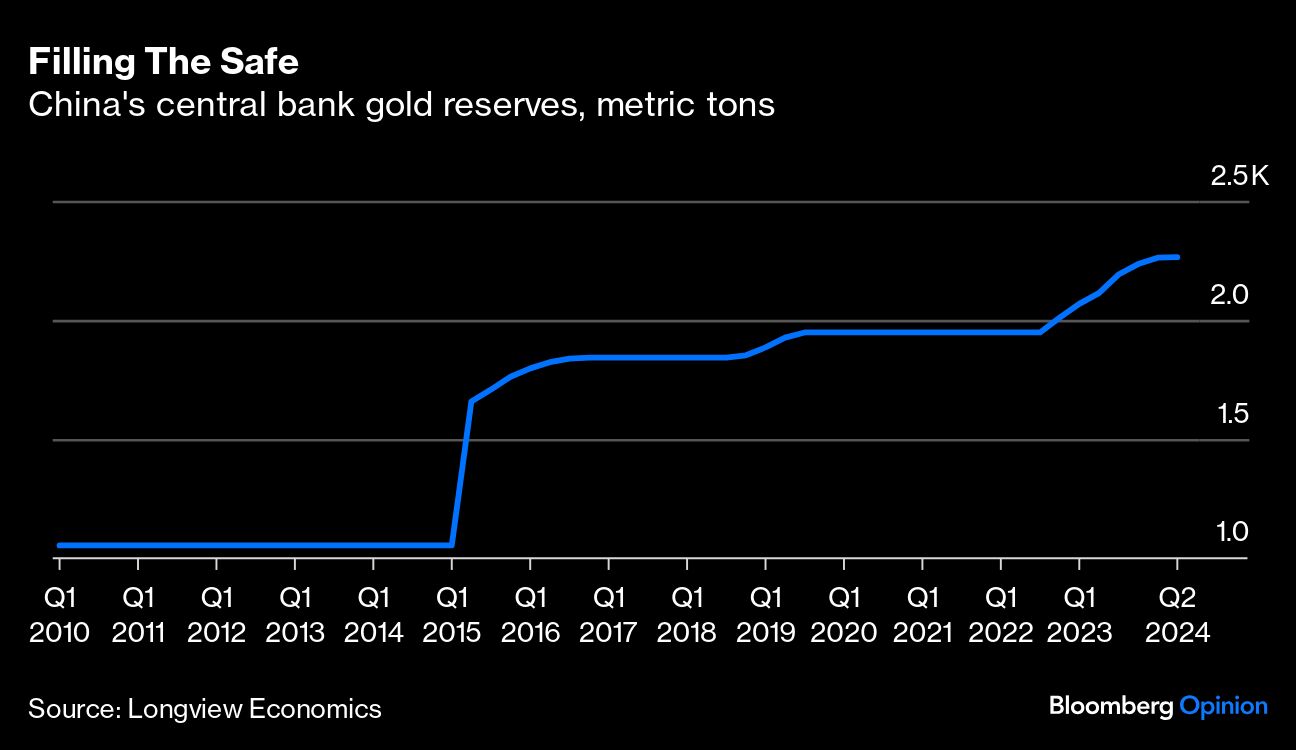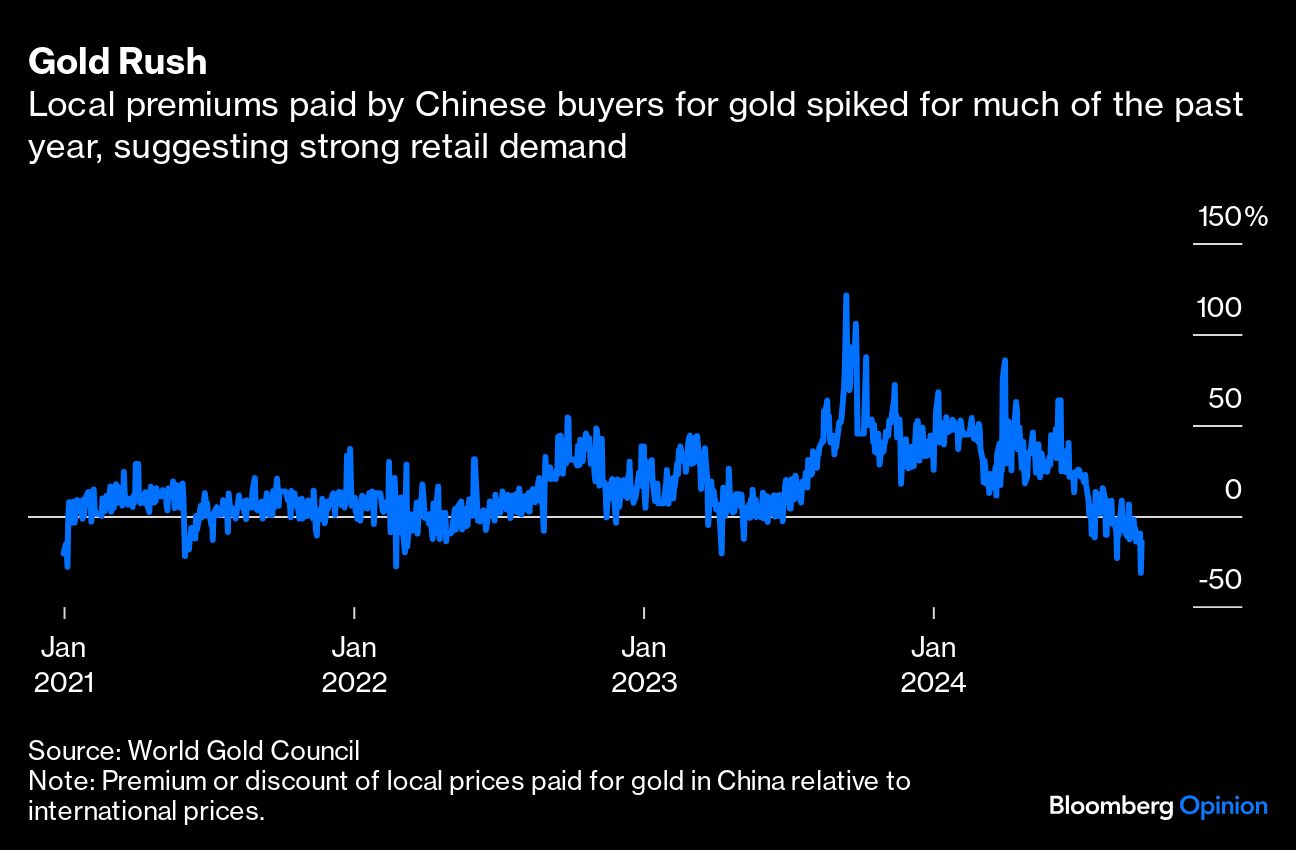
(Bloomberg Opinion) -- Gold is what you buy when everything isn't goldilocks. Inflation, deflation, war, pestilence — gold is a certain anxious state of mind made tangible in a seductive but mostly useless metal. In a weird spin, gold has been enjoying a goldilocks period itself, hitting a new record last week. More that that, it seems almost immune to things that would usually drag it down.
Almost.
Gold's investment case tends to morph over time but is often framed in relative terms: Gold versus stocks, the dollar, bitcoin, whatever. The one that makes intuitive sense is gold's relationship with real Treasury yields: When the latter are positive or rising, gold, which yields nothing, should suffer and vice-versa. This relationship broke in 2022.

The amount of gold bought by central banks more than quintupled between the first and third quarter of 2022.
A multifactor model of gold prices maintained by Longview Economics, a London-based analysis firm, diverged sharply from the market price of gold in 2022 after tracking it closely since 2008. By early 2024, the model indicated a price below $1,000 per ounce whereas gold was then trading at more than $2,000. Similarly, physically-backed gold exchange-traded funds began liquidating their stockpiles in earnest in mid-2022, likely taking their cue from the Federal Reserve's policy tightening. But that barely weighed on prices and then gold actually rallied even as ETF liquidation continued.

Gold actually rallied even as ETF liquidation continued.
Gold was saved by central banks stepping into the breach. Russia's new invasion of Ukraine in 2022 sparked sanctions by the US and its allies, prompting a wave of gold stockpiling by central banks as a geopolitical hedge and in order to diversify reserves away from the dollar. The amount of gold bought by central banks more than quintupled between the first and third quarter of 2022 and has since remained elevated relative to the prior decade, with China playing a prominent role.

China's role in the gold rally may not end at the central bank.
China's role in the gold rally may not end at the central bank. The country's economic slowdown, concentrated in an overcapitalized real estate sector, is reflected in household confidence and housing transaction volumes that have been in free fall since 2022. Similarly, Chinese stocks have had a “biblically awful run” since their post-pandemic peak in 2021, as my Bloomberg Opinion colleague John Authers puts it.
Renewed stimulus efforts from Beijing have lifted stocks but may be pushing on a string when it comes to reviving construction activity. Notably, Rory Johnston, who publishes the Commodity Context newsletter, opines that 2024 is likely to mark only the second year in more than three decades where Chinese oil demand actually declines, in part because of weaker construction hitting diesel consumption. As an aside, gold now trades at its highest level relative to oil since early 2021, during the acute phase of the pandemic.
With 70% of Chinese household wealth tied up in real estate, stocks and yields dropping, and cryptocurrencies banned, gold makes for an obvious alternative asset. And there's evidence that Chinese investors have been buying in the form of an uptick in the local premiums paid for physical gold there for much of the past year or so. The World Gold Council's “over-the-counter and other” line item for global demand — essentially a plug to reconcile it with supply — has also seen a sustained increase in recent quarters, suggesting unobserved stockpiling of gold has picked up.

The Fed's pivot to easing and rumblings about a potential US recession being in the offing have added further fuel of late.
The Fed's pivot to easing and rumblings about a potential US recession being in the offing have added further fuel of late. With geopolitics having allowed gold to skirt the tightening cycle, it looks set to benefit further from its traditional ally, falling real yields.
Yet the US economy looks to be in rude health and expectations for another 200 basis points of Fed easing are baked into market pricing already. Geopolitics remain a wildcard from Kyiv to Beirut, of course, but even these flashpoints are now part of the established backdrop. Central bank buying of gold was still elevated in the first half of the year but had eased somewhat from the frenetic pace of 2022. Meanwhile, Chinese physical gold premiums have flipped to discounts, suggesting the appetite there is sated for now.
The risks on which gold thrives are all still there, to some degree, but gold's rally appears to have priced them in already and then some. Chris Watling, Longview's founder and chief executive, observes drily with regards to a gold market that looks overcooked: “Everyone owns it and everyone wants to know what you think of it.” When there's that much optimism around gold itself, maybe it's time to worry.
Essential Business Intelligence, Continuous LIVE TV, Sharp Market Insights, Practical Personal Finance Advice and Latest Stories — On NDTV Profit.






















